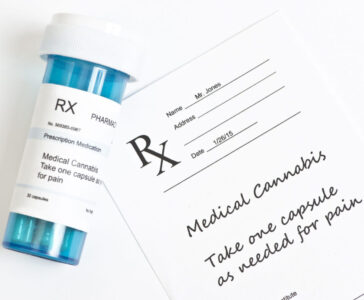 Medical cannabis is becoming more popular across the United States as a way of managing pain and discomfort associated with a wide variety of conditions, but scientists and medical experts are constantly evaluating cannabis to ensure its safety and effectiveness. A recent article on Medscape titled “Cannabis Is Interfering With The Heart” caught our attention, and we wanted to take a closer look at the article, the study it focuses on and its implications for your health.
Medical cannabis is becoming more popular across the United States as a way of managing pain and discomfort associated with a wide variety of conditions, but scientists and medical experts are constantly evaluating cannabis to ensure its safety and effectiveness. A recent article on Medscape titled “Cannabis Is Interfering With The Heart” caught our attention, and we wanted to take a closer look at the article, the study it focuses on and its implications for your health.
Marijuana And Your Heart
Published earlier this month, the Medscape article “Cannabis Is Interfering With the Heart” dove into growing evidence linking cannabis to cardiovascular risks. A massive U.S. study of over 430,000 people found that daily cannabis users – which represents about 4% of respondents – had a 49% higher risk of heart attack (myocardial infarction) and double the risk of stroke compared to non-users. Even more concerning is the fact that these risks showed up across all ages, even in younger, seemingly healthy folks without prior heart issues. Researchers also point to stronger synthetic cannabis options binding tightly to the CB1 receptor, potentially amplifying these dangers.
Why This Hits Home for Us
Post-operative care is all about healing smart, and that includes protecting your heart. After ankle or foot surgery, your body is already working hard to recover. A stressor like cannabis – whether smoked, vaped, or eaten – has the potential to complicate things. The study suggests cannabis triggers inflammation and damages arteries, which could mean delayed healing or even bigger problems like blood clots. For our patients, that’s a risk we don’t want to ignore.
The Science Behind the Scare
Cannabis affects your cardiovascular system in ways we’re only starting to fully understand. It can spike your heart rate, raise blood pressure, and inflame blood vessels, in turn setting the stage for heart attacks or strokes. Synthetic versions, often more potent, might push these effects even further. While the data isn’t entirely conclusive (correlation isn’t causation, after all), the signals are strong enough that experts are urging clinicians to talk to patients about their cannabis use.
If you’re a cannabis user, whether it be medicinal or recreational, and you’re facing or recovering from surgery, this is a conversation worth having with your provider. We’re not here to judge; we’re here to help you heal. Cannabis might feel like a relaxer, but if it’s quietly stressing your heart, it could undo the progress we’re working toward together. Plus, with foot and ankle conditions often tied to circulation, anything that messes with your blood flow deserves a second look.
The Bottom Line
This study is a heads-up, not a final verdict. But it’s enough to make us pause and think about how cannabis fits into your recovery plan. At Resurgens Orthopaedics, we’re all about getting you back on your feet quickly and safely. Do you have questions about this or your post-op routine? Reach out. We’re here to guide you every step of the way. Feel free to pick up the phone and give Dr. Silverman a call at (770) 475-2710.